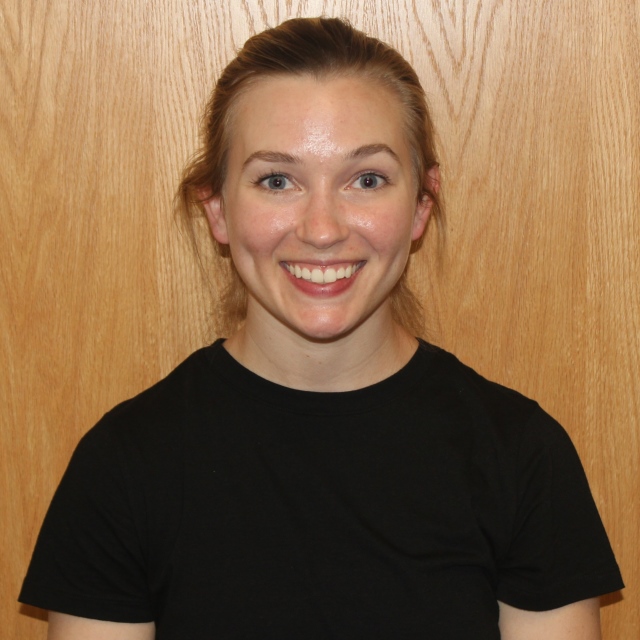How to Break Through a Weight Loss Plateau
Posted by Kaitlin Thompson on April 18, 2024
If you have ever been on a weight loss journey, it’s possible you’ve experienced what is called a “weight loss plateau” – typically defined as a period of 2 weeks or more with no weight loss while healthy habits have seemed to remain consistent. This is understandably frustrating, as we’re hard-wired to want to see immediate results from our hard work. While it may comfort you to know that these plateaus can be a normal part of the process, there are still things that we can tweak to ensure we continue making forward progress.
When encountering a weight-loss plateau, it is important to take a look at current habits through a very honest lens. Are we still truly eating in a calorie deficit? Moving as much as we used to? Has our sleep or our stress levels changed?
Meal logging, such as with the EatLove app provided through the RAC, is a helpful tool you can use to ensure you are still on the right path. We are great at underestimating how many calories we consume in a day, while simultaneously often overestimating how many calories we burn through daily activity. It can be hard to keep track of it all if we’re not meal logging.
Logging your food is a great first step to help you understand what an appropriate portion of something looks like, and can give you a detailed breakdown of the foods you are eating to ensure you’re staying properly nourished. It does not need to be a forever thing, and can be utilized as needed during periods when you’re feeling stuck. (Please note: if you have ever experienced disordered eating, meal logging may not be the best option for you.)
In addition to learning how much we’re currently consuming through our food (our “calories in”), we need to learn what makes up our Total Daily Energy Expenditure (TDEE – also known as “calories out”). Weight loss boils down to “calories in” minus “calories out”. Our TDEE includes all daily activities, and can vary widely depending on how active you are and how much lean body mass you possess.
Total Daily Energy Expenditure (TDEE) breaks down into:
- ~60-75% Basal Metabolic Rate (BMR)
- ~15-30% Thermic Effect of Physical Activity (TEPA) including Non-Exercise Activity Thermogenesis (NEAT)
- ~10% Thermic Effect of Food (TEF)
I like to show this breakdown to help explain that our TDEE is determined by so much more than just our time exercising.
There are many online calculators that can help you estimate your TDEE. However, I typically like to start by finding your BMR (we can do this using the InBody machine). Then multiply it by an Activity Factor (for example, if you are lightly active, we’d multiply your BMR by 1.375 to find your TDEE). If weight loss is the goal, we’d then subtract (typically a range of 250-500 calories) to find your calorie needs for 0.5-1lb. of weight loss per week.
An average sustainable rate of weight loss is 0.5-2lbs per week. If we lose weight too quickly, we increase our risk of losing lean body mass alongside our body fat mass. That in turn can “slow” our metabolism by lowering our BMR as lean body mass is more metabolically active than fat mass.
This is one of the many reasons we do not recommend following fad diets that promise quick weight loss. If we lose weight quickly using unsustainable habits, we increase our risk of losing lean body mass and gaining the weight back afterwards. It is likely that the weight we gain back will consist of mostly fat mass, meaning that we are now at our previous weight but have a higher body fat percentage than before and have a lower BMR, meaning that any future weight loss attempts may become more difficult.
Regardless of the cause of your weight loss plateau, there is hope if weight loss is still your goal. If you’re feeling stuck, I’d encourage meeting with a dietitian to see what tweaks can be made and to ensure that you are still fueling your body properly to lose weight in the healthiest way possible. It’s also a great idea to take this time to strongly focus on any “non-scale” victories that may be present – chances are there are many of them! Things like clothes fitting better, increasing weights at the gym, sleeping better, having more energy, etc. are all non-scale victories that we can celebrate on a daily basis.

Kaitlin Thompson
Kaitlin Thompson, RD, LD has a BS in Dietetics from North Dakota State University. She is originally from northern MN and has lived in Rochester for over 4 years. She has a passion for helping others reach their health and wellness goals, and enjoys helping others implement sustainable healthy habits in their own life. In her free time, you can find her gardening, biking, walking, lifting weights, and traveling back up to the northern part of the state.
Contact Kaitlin Thompson



